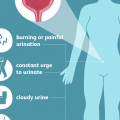It is common to feel shocked, sad, grief, confusion, and other emotions after miscarrying. You may feel like you are all alone and that no one understands what you are going through. The physical pain can also be unbearable. Miscarriage Celebration is any pregnancy loss before the 20th week of gestation.
When it happens, you might have heavy bleeding and cramping that can last for several hours, and you might also pass clots or tissue. After a miscarriage, it is normal to have all of these emotions and physical sensations. Many women also have difficulty sleeping, lose their appetite, and feel exhausted. All of these are common reactions to the loss of a pregnancy.
It is imperative to talk to someone who understands what you are going through and can offer support and guidance. A specialist can help you process your emotions, deal with the physical pain, and answer any questions you might have.
Below is a breakdown of the reasons you need to consult a medical specialist after a miscarriage:
To ensure that the miscarriage is complete
The miscarriage must be complete before you leave the hospital. If it is not, you are at risk for infection or bleeding. A specialist will be able to check to see if the miscarriage is complete and help you make a plan for follow-up care. Completion means that the cervix is closed, and all of the pregnancy tissue has been passed.
To help you cope with your emotions
A miscarriage can be a heartbreaking experience. You might feel sadness, grief, anger, or guilt. A specialist can help you work through these emotions and start to heal. They can also offer support and resources to help you cope.
To ensure that you do not have an infection
After a miscarriage, you are at risk for infection. Ensuring that the uterus is clean and free of any infection is vital. A specialist can check for this and also prescribe antibiotics if needed.
To help you make a plan for the future
After a miscarriage, you might have questions about trying to get pregnant again. A specialist can help you understand your risks and make a plan for the future. They can also offer support and resources to help you through this process.
To provide information about genetic testing
If you have had multiple miscarriages, you might be interested in genetic testing. It can help determine if there is a genetic cause for the miscarriage. A specialist can provide you with information about this process and help you decide whether or not it is right for you.
To offer support
Losing a pregnancy can be a challenging experience. A specialist can offer support and resources to help you through this process. They can also provide information about support groups or counseling services.
If you have experienced a miscarriage, it is essential to talk to a specialist at the Center for Reproductive Medicine. Your specialist will offer guidance, support, and information about what to expect in the future.









